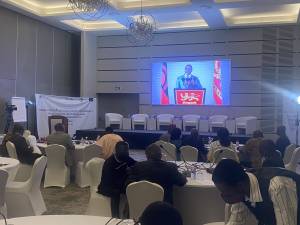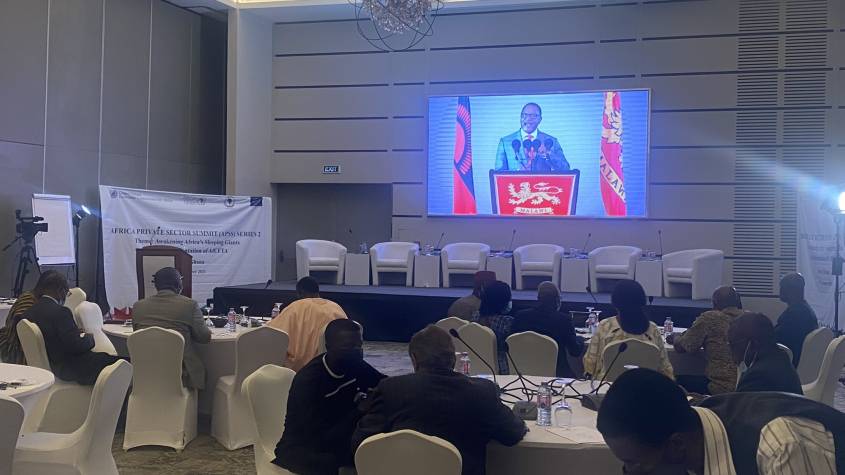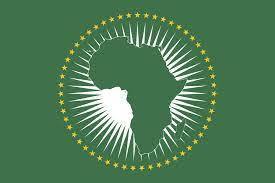Malawi’s President Chakwera keynotes APSS Series 2
President Lazarus Chakwera of the Republic of Malawi cum chairperson of the Southern African Development Community (SADC) on Tuesday delivered the keynote address (via video conferencing) at Series 2 of the Africa Private Sector Summit (APSS), holding between 19th and 22nd of October in Accra, Ghana.

By Adam Alqali
The conference is themed: “Awakening Africa’s Sleeping Giants in the Implementation of Regional Economic Commissions (RECs) and the African Continental Free Trade Agreement (AfCFTA) and Leveraging Strategic Opportunities for Africa’s Turnaround.” It is being hosted by the Economic Commission for Africa (ECA); the Association of African Universities (AAU); the Pan African Chamber of Commerce and Industry (PACCI); and the Ghana National Chamber of Commerce and Industry (GNCCI), among others.
APSS seeks to foster strategic alliances among private sector actors, namely academia, labor, civil society, and consumers, on the one hand; and between private sector and the public sector, on the other hand; this is to facilitate the free flow of business and trade activities under the AfCFTA. The maiden edition of APSS (Series 1) themed: “Doing Business under the Africa Continental Free Trade Area” held virtually in March 2021.
In his keynote, President Chakwera said although Malawi assumed the leadership of SADC months ago, his country’s vision was far beyond the SADC region since it was chairing the regional economic block in the framework of the AfCFTA, which he said, had brought new opportunities for exponential growth and collective prosperity to the continent.
“Malawi is the first country to export goods to another African country outside of its regional economic zone under the AfCFTA. As I speak, over a dozen trucks loaded with agricultural produce are on the road from Malawi heading to South Sudan. This inter-regional trade is a mission whose time has come. For it makes no sense for Africans to produce so much and yet trade so little among themselves,” decried President Chakwera.
The SADC chair said Africa must see the AfCFTA not as an achievement rather as merely a runway from which their economies must take flight, urging African countries to make the necessary changes in their national policies to allow for the required free movement of people, goods and services across their borders.
“It simply makes no sense for Africans to hold each other hostage at airports and border crossings while Westerners are given preferential passage; each regional economic block need to lift these primitive restrictions with decisiveness. The same is true with the African aviation industry where many economies have difficulties creating their own national airlines. I see no reason why a group of countries from the same region cannot explore the idea of a collective ownership of one airline that eases movement across their region,” he urged.
President Chakwera said African countries had to also collaborate on key sectors crucial for the success of the AfCFTA namely, electricity, telecommunications, and infrastructure, noting that Africans were inextricably linked by a shared history, culture, and language; hence for the AfCFTA to succeed, it had to leverage these links and not ignore them.
Earlier on, Yinka Adeyemi, a senior advisor at ECA working on trade policy and advocacy, said there was need to facilitate linkages between the private sector and AfCFTA so as to deal with a wide-range of challenges, from financing to Rules of Origin and Intellectual Property Rights (IPR), decrying the multiple barriers to trade among African countries.
“Despite its small size, Swaziland (Eswatini) can produce enough sugar to meet Africa’s needs. However, the cost of importing sugar from Swaziland to for instance, Benin Republic is ten times the cost of importing sugar from China. This is the reality of our infrastructure deficit, we need to deal with it; I dare say we are already dealing with it through the Programme for Infrastructure Development in Africa (PIDA) which was endorsed by our Heads of State,” he noted.
Adeyemi also identified misinformation and disinformation leading to the spread of fake information about the AfCFTA resulting in negative trade impacts on African countries as another crucial challenge that needed to addressed adding that the ECA was to this end, evolving a project focused on developing the digital footprints of AfCFTA stakeholders across 24 countries.
He said the project would help counter people’s misgivings about the CFTA by providing studies and analyses aimed at countering various forms of misinformation and disinformation about the free trade area so as to facilitate the free flow of trade around the continent in accordance with Agenda 2063: The Africa We Want.
In his welcome remarks, Mr J Wendell Addy, the chairperson of APSS, said for the AfCFTA to transform Africa all stakeholders needed to be brought on board adding that achieving trade integration required a bill of rights for creating an enabling business environment in Africa. Mr Addy said creating an enabling business environment demanded addressing barriers to free trade such as financing, peace and security as well as standardized entry regulations across countries.
“We cannot transform the continent without the key participation of the academia; we need a strong academic/ TVET programme. The private and public sectors need the academia to function hence we need to integrate the academia into the AfCFTA conversation. In that direction, we are looking at creating an educational trust fund. Therefore, APSS Series 2 will come up with sound resolutions and projects to address these challenges which are crucial enablers for transforming the continent,” he assured.
Mr Addy said APSS seeks to ensure the private sector, academia and African universities work together in addressing these challenges so as to end Africa’s paradox of being potentially the world’s richest continent but in reality, its poorest continent. “There is a gold rush in Africa except that those rushing for gold in Africa are not Africans.”















